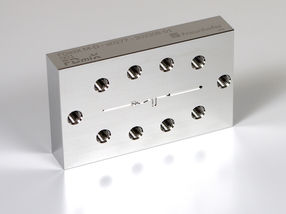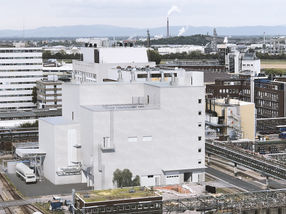Süd-Chemie to build Germany´s largest plant for the biotechnological production of biofuels from straw
Sustainable project to be subsidised by Bavarian State Government and BMBF
Süd-Chemie AG is to build Germany´s largest plant to date for the production of climate-friendly, second-generation bioethanol, so-called cellulose ethanol, based on biotechnological processes.
The total project has a volume of altogether €28 million and comprises an investment volume of some €16 million and accompanying research projects amounting to approximately €12 million. These and additional related research projects will be subsidised by the Bavarian State Government and Germany's Federal Ministry of Education and Research (BMBF) with approximately €5 million respectively.
As from the end of 2011, this large-scale demonstration plant, located in the immediate vicinity of the new Bavarian BioCampus in Straubing, will produce up to 2,000 metric tons per year of bioethanol fuel from agricultural waste, such as cereal straw.
"By launching construction of this demonstration plant for our so-called sunliquid® technology, we continue to pursue our strategy of developing to market maturity sustainable manufacturing processes for climate-friendly biofuels and chemicals, based on leading expertise in the fields of catalysis, biocatalysis and process engineering. In view of the increasing expense and risks involved in excavating oil, we are making a significant contribution to providing a sustainable substitute for oil-based products," said Süd-Chemie AG´s Managing Board Chairman, Dr. Günter von Au.
"Compared with the first-generation biofuels already in use today, for instance biodiesel, which consist of fuel extracted from plant material containing oil and starch, second-generation biofuels like cellulose ethanol offer considerable advantages. Firstly, they have much better climate and energy balances, since their potential for reducing CO2 emission is, for instance, significantly higher. Secondly, they do not compete with the cultivation of either food or animal feed," continued Dr. von Au.
The sunliquid® process, which Süd-Chemie has been testing in a pilot plant since the beginning of 2009, is an innovative method of producing second-generation bioethanol in a cost-effective and energy-efficient manner. To this end, cellulose-based plant residue, such as wheat straw or maize straw, bagasse from sugar cane or so-called energy crops, are initially converted into sugar constituents with the aid of enzymes generated using biotechnology. Bioethanol is subsequently extracted from these constituents and used as fuel. In the case of Süd-Chemie´s process, not only the cellulose contained in plants, but also the so-called hemicellulose can be converted into ethanol, making it possible to increase ethanol production by up to fifty percent compared with conventional technology. Furthermore, the enzymes needed to convert the cellulose can be optimised depending on the original raw materials used and produced directly on the spot in each production plant. This guarantees an optimal enzyme supply, being both highly efficient and cost-effective.
Süd-Chemie´s demonstration plant located in Straubing will represent a scaled-down version of the entire integrated manufacturing process required to convert cellulosic plant residue into bioethanol.
Topics
Organizations
Other news from the department manufacturing

Get the life science industry in your inbox
By submitting this form you agree that LUMITOS AG will send you the newsletter(s) selected above by email. Your data will not be passed on to third parties. Your data will be stored and processed in accordance with our data protection regulations. LUMITOS may contact you by email for the purpose of advertising or market and opinion surveys. You can revoke your consent at any time without giving reasons to LUMITOS AG, Ernst-Augustin-Str. 2, 12489 Berlin, Germany or by e-mail at revoke@lumitos.com with effect for the future. In addition, each email contains a link to unsubscribe from the corresponding newsletter.




















































